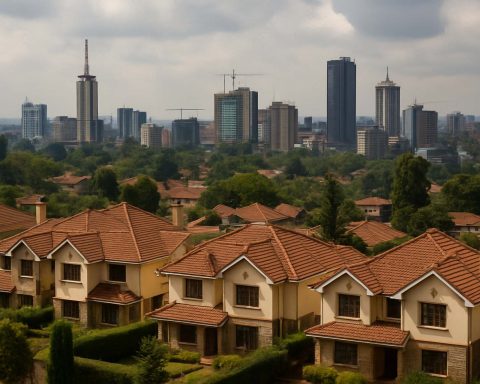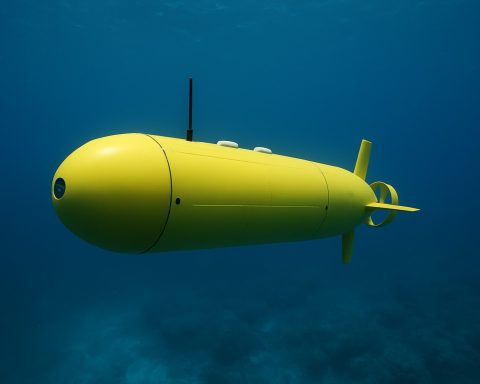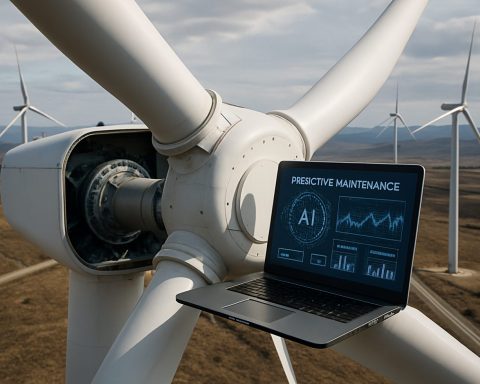The Wind Turbine Gamble: Oklahoma Farmers Bet Big on Renewable Energy and Changing Traditions in 2025
Discover how Oklahoma’s wind turbines are fueling rural economies, transforming farming life, and igniting fierce debates in 2025.
- 5,597 wind turbines now dot Oklahoma’s rural landscapes
- Wind generates 42% of Oklahoma’s in-state electricity (2023)
- Landowners receive over $98 million/year in wind lease payments
- Wind projects have paid nearly $1 billion in local taxes
Stepping out his front door, Kevin Brewer’s first glance is always to the sky—specifically, to the towering wind turbines neighboring his seed wheat fields. On calm days, the pristine white blades stand still. But in Oklahoma, silence is rare. For Brewer, a retired agriculture teacher and fourth-generation farmer near Watonga, wind is more than a weather report—it’s a barometer of his family’s future and a daily symbol of change.
As Brewer tinkers with farm equipment, kids play in the barn, and cattle graze nearby. Life seems unchanged. Yet, perched above the wheat, five colossal turbines hum a new kind of rural prosperity—one that supplements unpredictable farm incomes and stirs debate from the barnyard to the State Capitol.
U.S. Energy Information Administration | Oklahoma State University | USGS | U.S. Department of Energy
Q: Why Are Wind Turbines Spreading Across Oklahoma?
Wind power’s surge isn’t a fluke. Oklahoma’s broad, blustery plains, crisscrossed with vital transmission lines, make it ideal territory. Since 2003, when the state’s first wind farm whirred to life, developers have installed nearly 5,600 turbines, mostly in the west. These machines churn out 42% of in-state electricity—making Oklahoma one of the top wind-powered states in the U.S.
How Do Wind Farms Affect Family Farmers?
Wind energy isn’t just about clean power—it’s transforming how Oklahoma farmers balance the books. Leasing land for turbines means stable, long-term payments that aren’t dependent on rain, market prices, or pests. In Brewer’s case, it helps pay bills and ensures a legacy for his grandchildren—literally, as some turbines now bear their names.
But it’s not all green pastures. Farmers like Brewer admit trade-offs: crop yields can drop near the towers, heavy equipment alters the land, and unpredictable maintenance crews disrupt routines. Still, the financial cushion helps weather the storms—both literally and figuratively.
Q: What Happens to Rural Communities When Wind Farms Move In?
The impact reaches beyond the farm gate. Local taxes from wind farms funnel nearly $1 billion to public schools, vocational training centers, and county budgets. In Weatherford and nearby Thomas, new gyms and modern sports fields—unimaginable before wind revenue—now anchor small-town life. The influx of construction jobs and steady payments has revitalized struggling communities.
How Lawmakers and Locals Are Responding to the Rapid Growth
Despite the benefits, controversy swirls. In 2025, wind development faces strong pushback—proposed bills aim to restrict expansion, and rallies echo with concerns about land rights, rural identity, and the visual impact of wind towers. Some lawmakers champion oil and gas, touting their historical role, while others defend wind as an essential rural investment during tough agricultural times.
The divide can be personal—even artistic. Rural leaders argue that progress is in the eye of the beholder: where some see “ugly” industrial towers, others see hope, economic growth, and a lifeline for the next generation.
How-To: Weighing the Pros and Cons of Hosting Wind Turbines on Your Land
Thinking of joining the wind energy wave? Here’s what prospective landowners should consider:
- Review long-term lease contracts—understand both payments and land use restrictions
- Assess the impact on crops, livestock, and daily operations
- Gauge community sentiment and potential regulatory changes
- Consult legal and financial experts, like those at Oklahoma State University
Ready to harness the wind? Here’s your rural renewable checklist for 2025:
- Understand your land’s wind resource potential
- Calculate realistic income versus any loss in productivity
- Connect with trusted legal advisors before signing wind energy contracts
- Engage with your local community about the changes and benefits wind can bring
The winds of change are sweeping Oklahoma. Will you be ready to catch them, or get left behind? Explore your options—and your legacy—today.










